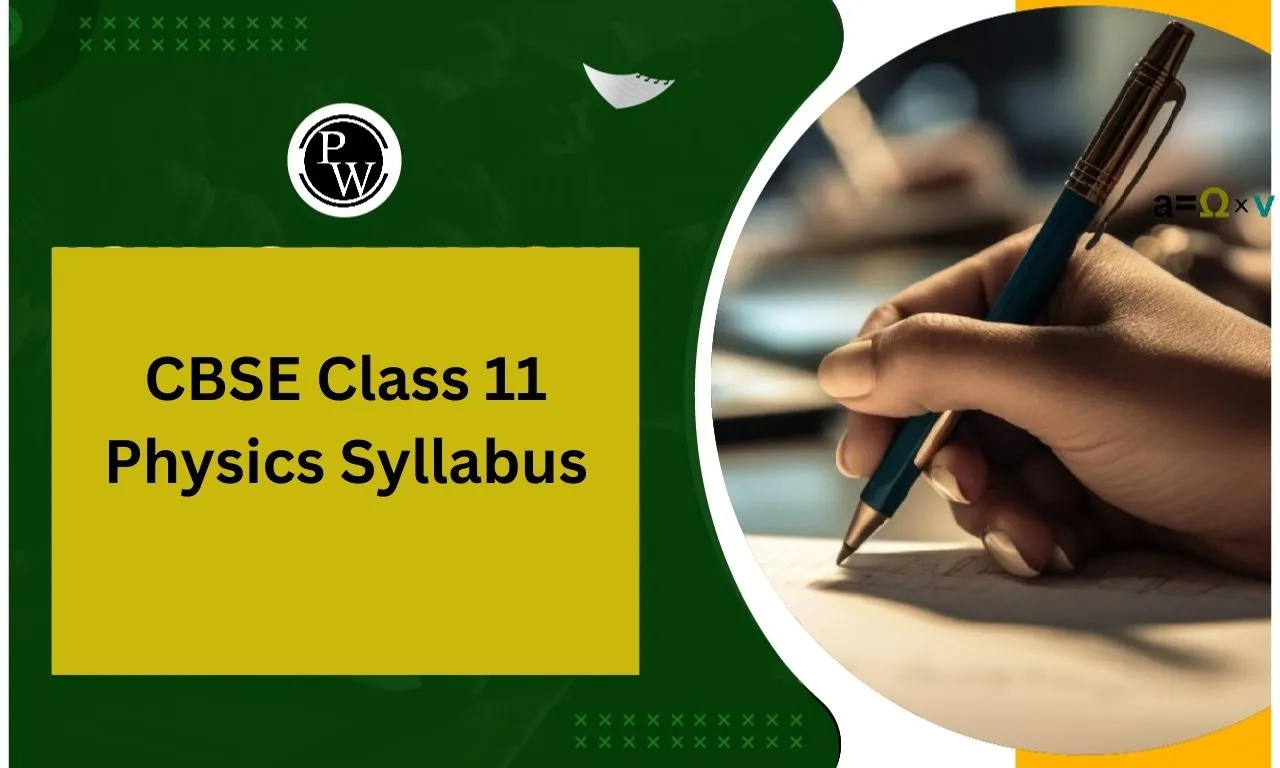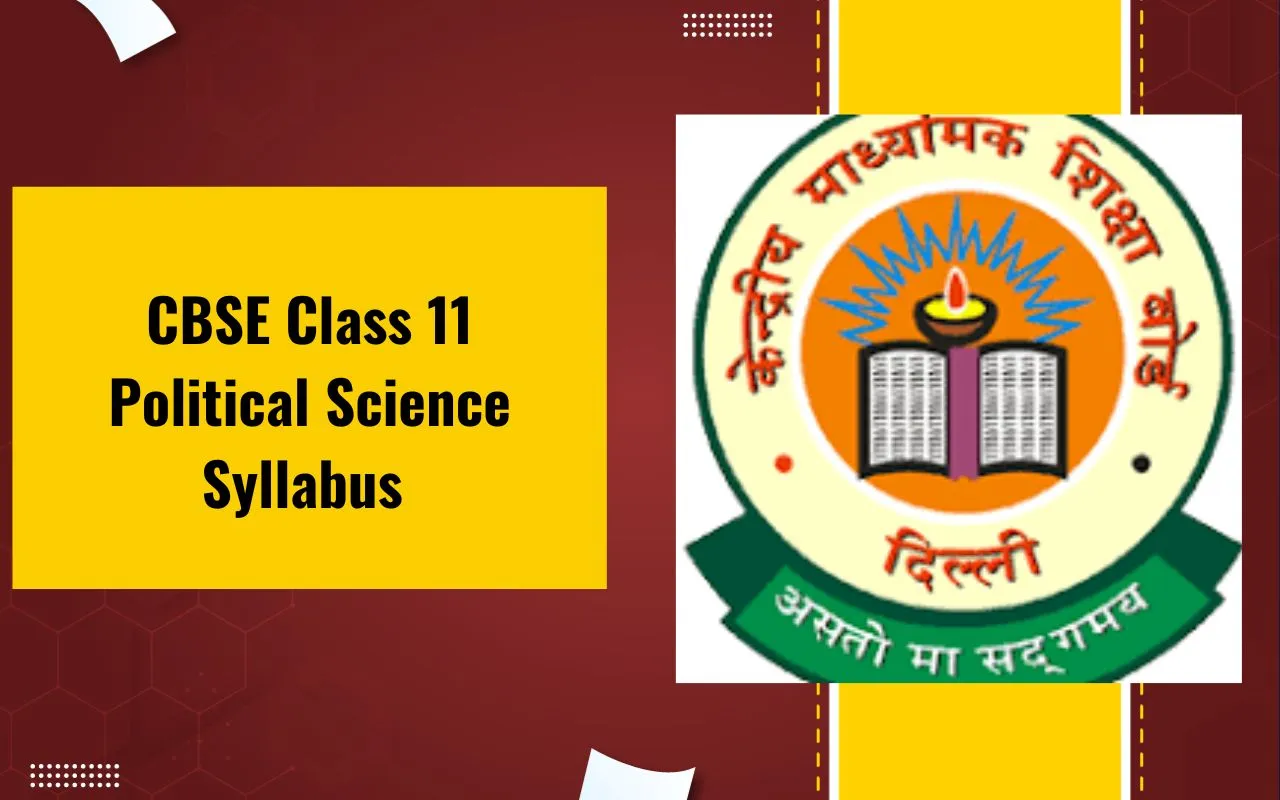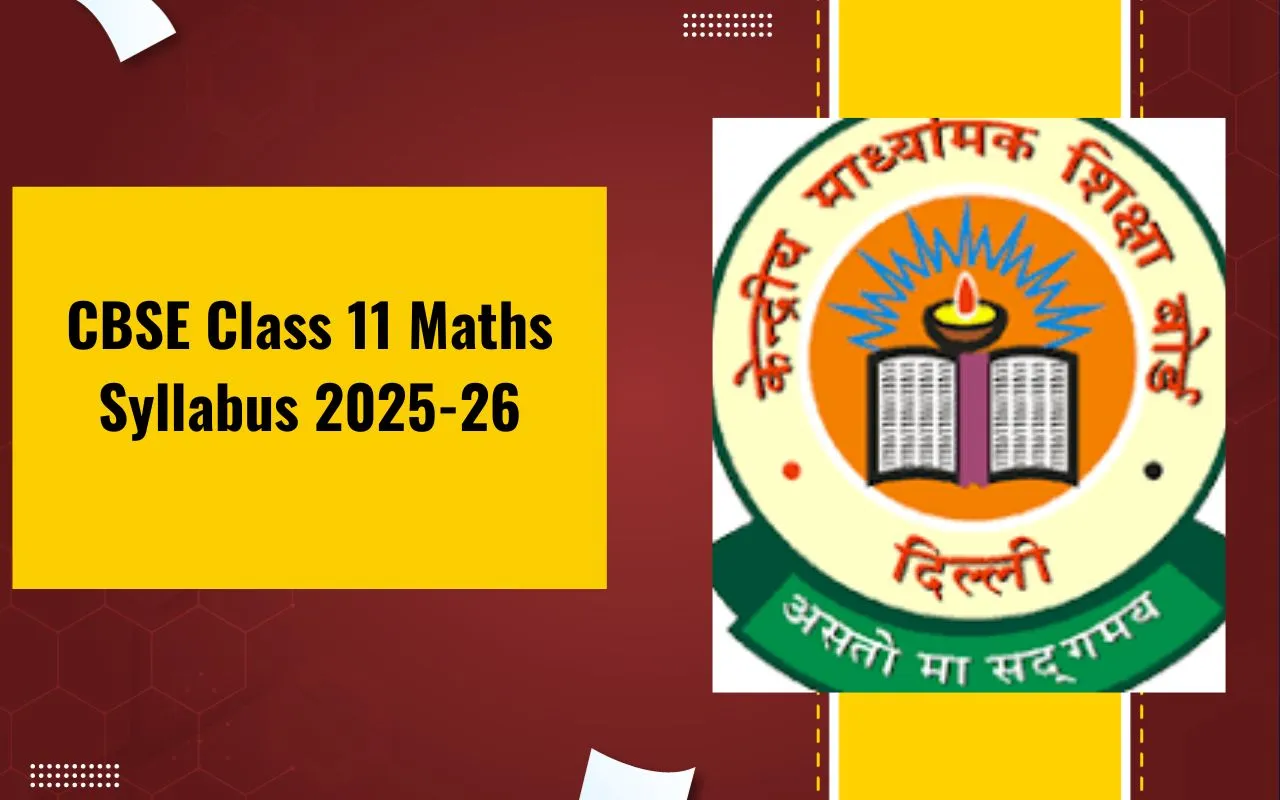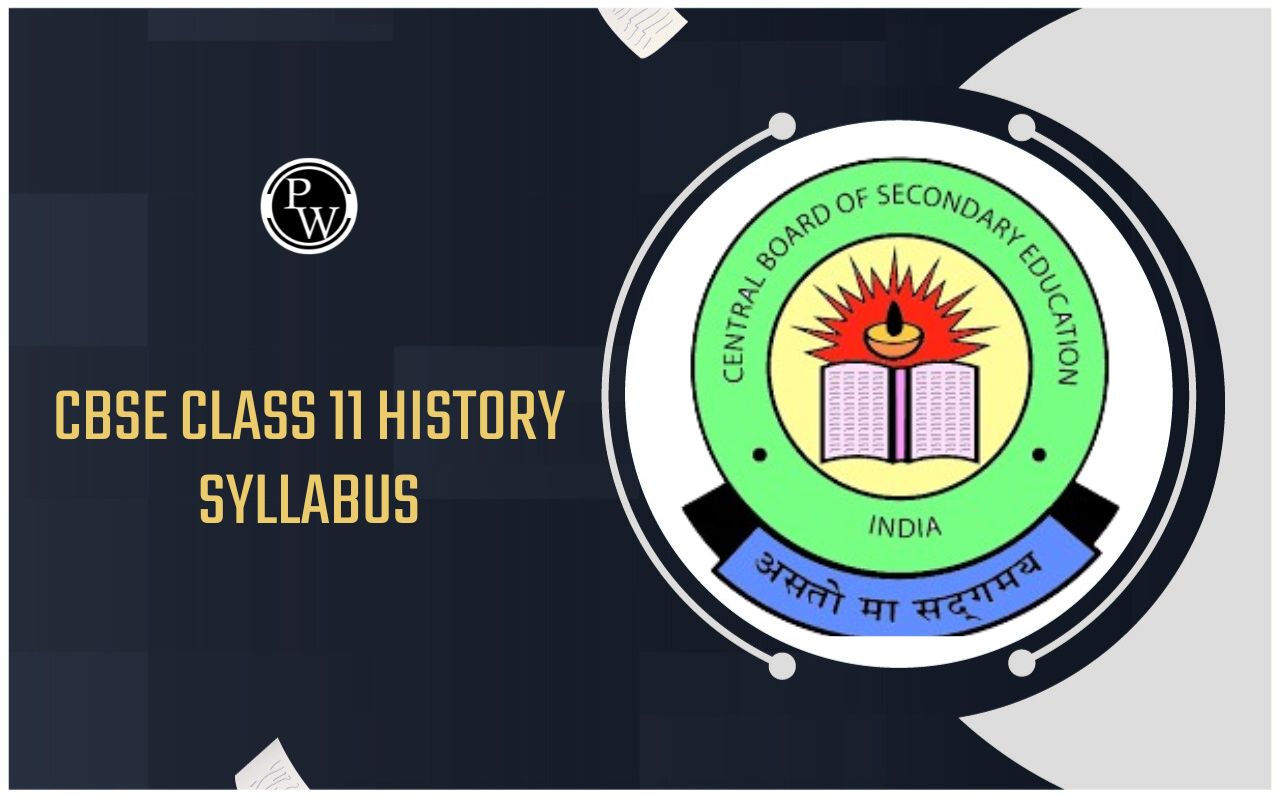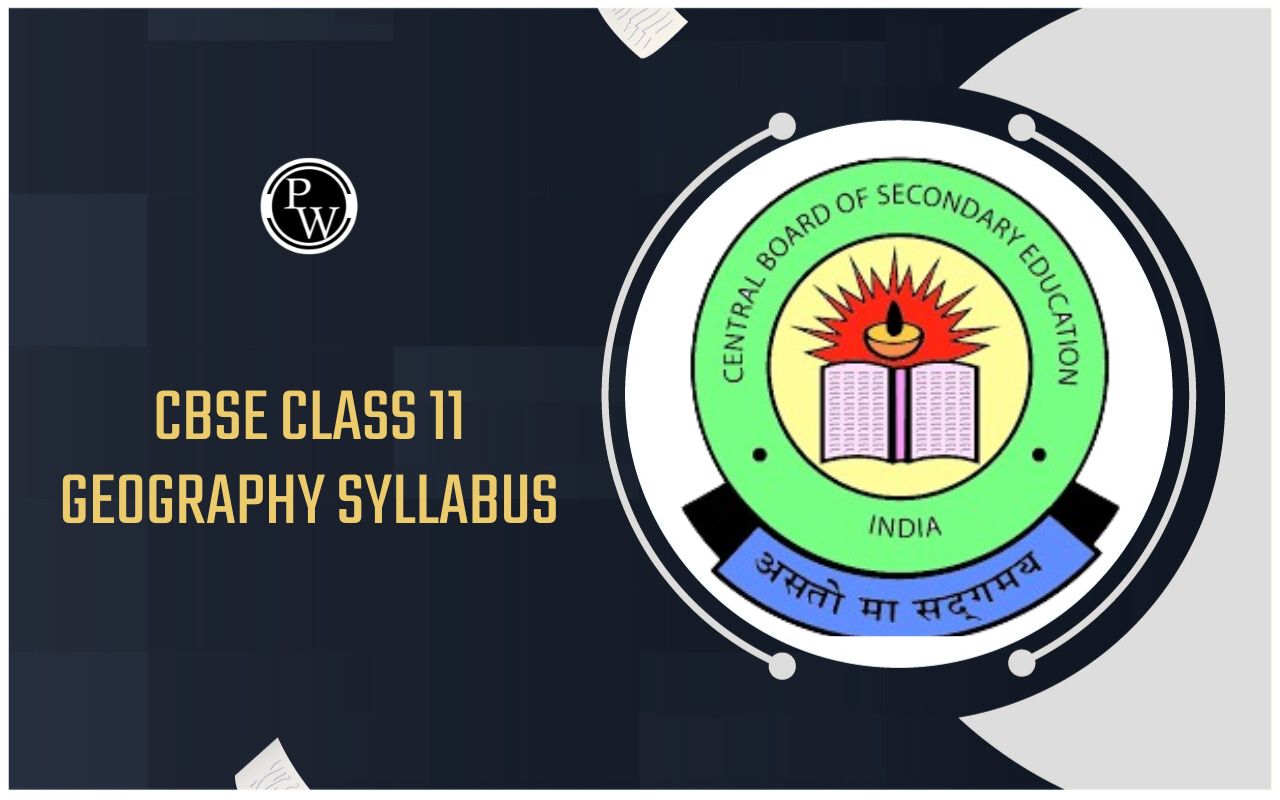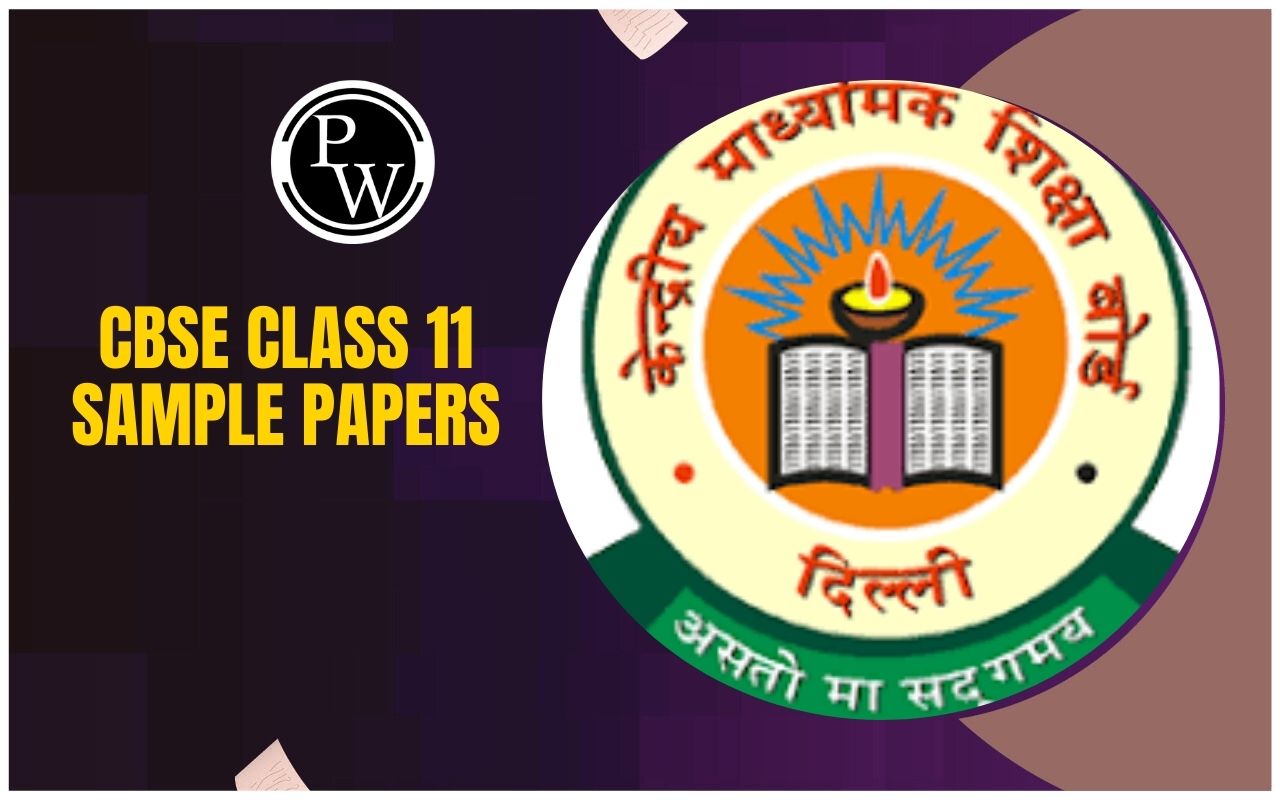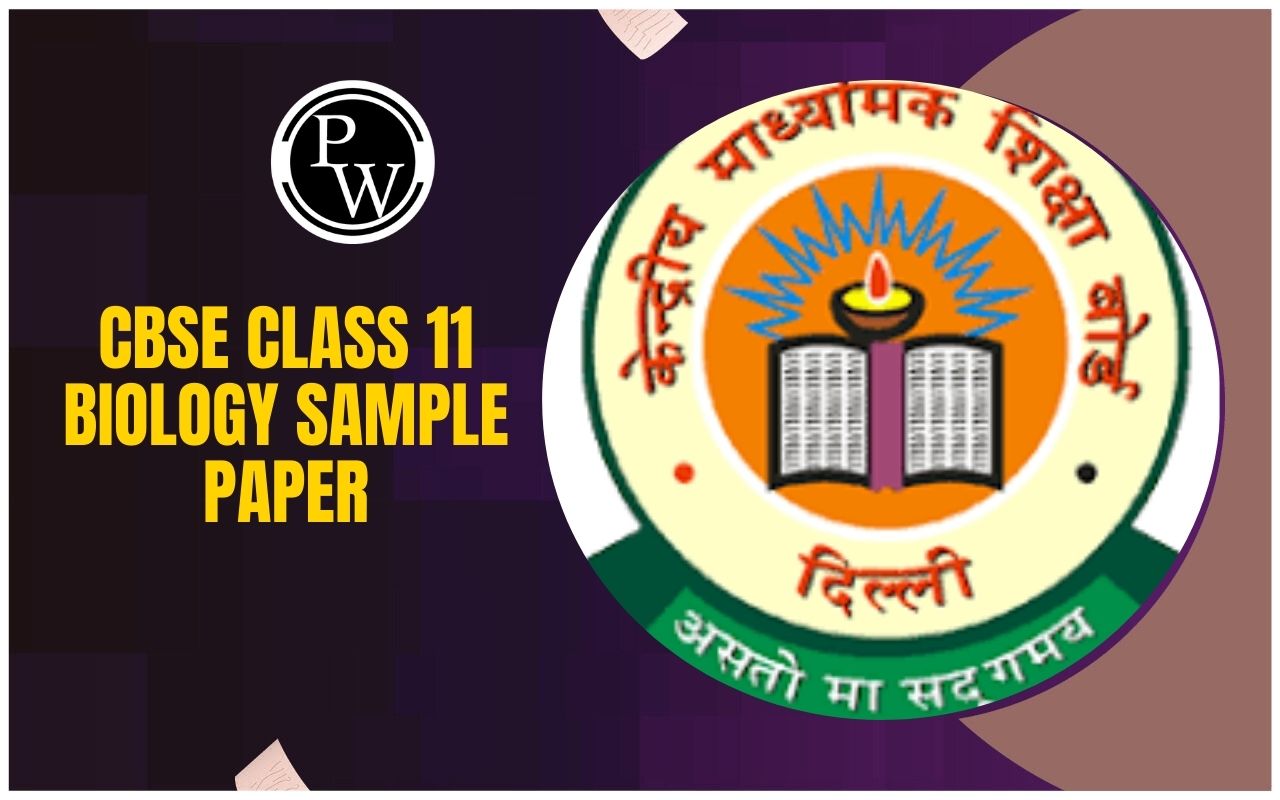
CBSE Class 12 Legal Studies Syllabus 2024-25: CBSE has released the Class 12 Legal Studies Syllabus for the 2024-25 academic year, which outlines the course structure and content for students pursuing the subject. The syllabus includes eight units covering key areas of law, including the Judiciary, Alternative Dispute Resolution (ADR), Business Laws, Human Rights, International Law, and more. It aims to provide students with a strong understanding of legal concepts, case laws, and the functioning of the legal system in India and internationally.
In addition to the theory exam, students will also have a practical exam and project work, where they will analyze and present legal cases. The syllabus is created to equip students with the knowledge and skills necessary for both academic success and future careers in law.
CBSE Class 12 Legal Studies Syllabus 2024-25 Overview
The CBSE Class 12 Syllabus for Legal Studies the academic year 2024-25 is created to provide students with an in-depth understanding of the legal system, covering both theoretical knowledge and practical applications of law. This syllabus aims to equip students with a comprehensive understanding of various branches of law and the functioning of the judicial system, focusing on topics such as business law, human rights, and international law. Below is an overview of the syllabus structure:
| Title | Details |
|---|---|
| Released By | Central Board of Secondary Education (CBSE) |
| Class | 12 |
| Subject | Legal Studies |
| Academic Year | 2024-25 |
| Course Structure |
The syllabus is divided into eight units, each focusing on different aspects of law:
Unit 1: Judiciary Unit 2: Alternative Dispute Resolution (ADR) in India Unit 3: Business Laws Unit 4: General LawsUnit 5: Human Rights Unit 6: International Law Unit 7: Legal Profession in India Unit 8: Legal Services |
CBSE Class 12 Legal Studies Syllabus 2024-25 Unit Wise
The CBSE Class 12 Legal Studies Syllabus for the academic year 2024-25 is created to give students a detailed understanding of the legal system, the functioning of courts, dispute resolution mechanisms, human rights, and the legal profession. The cbse syllabus is divided into eight units, each covering a specific area of law. Below is a detailed breakdown of the content covered in each unit:
CBSE Class 12 Legal Studies Syllabus For Unit 1: Judiciary
- Structure and Hierarchy of Courts : Understand the various levels of courts in India, including the Supreme Court, High Courts, and subordinate courts.
- Legal Officers in India : Roles of legal officers like judges, public prosecutors, and advocates in the judicial process.
- Constitution, Roles, and Impartiality : The role of the judiciary in upholding the Constitution and ensuring justice without bias.
- Appointments, Retirement, and Removal of Judges : The process of appointing judges, their tenure, and the procedures for their removal.
- Tribunals : The functioning of specialized courts for specific areas of law.
- Judicial Review : The judiciary’s power to review laws passed by the legislature and actions of the executive to ensure they align with the Constitution.
CBSE Class 12 Legal Studies Syllabus For Unit 2 : Alternative Dispute Resolution (ADR) in India
- Adversarial and Inquisitorial Systems : Differences between the adversarial (used in India) and inquisitorial systems of justice.
- Meaning and Scope of ADR : Alternative Dispute Resolution as an alternative to traditional litigation.
- Arbitration : A method where disputes are resolved outside court, by an impartial third party.
- Mediation and Conciliation : Collaborative processes that help parties settle disputes amicably.
- Lok Adalat, Ombudsman, Lokpal, and Lokayukta : Key institutions that address grievances and provide quick justice.
CBSE Class 12 Legal Studies Syllabus For Unit 3 : Law of Contract
- Introduction to Contracts : Basic principles and definitions of contracts.
- Formation of Contract : How contracts are formed, including offer, acceptance, and consideration.
- Intention to Contract, Capacity to Contract, Consent : Key elements required for a valid contract.
- Types of Contracts : Various contracts such as unilateral, bilateral, express, and implied contracts.
- Discharge of Contract : Ways a contract may be terminated, including by performance, breach, or agreement.
- Remedies in Case of Breach : Legal recourse available when a contract is breached.
CBSE Class 12 Legal Studies Syllabus For : Law of Torts
- Concept of Law of Torts : An introduction to civil wrongs that cause harm or loss to a person or property.
- Sources of Law of Torts : Origins of tort law, including judicial precedents and statutes.
- Intentional Tort : Wrongs committed deliberately, like assault or defamation.
- Negligence : Legal consequences of failing to take reasonable care.
- Strict Liability and Absolute Liability : Concepts of liability without fault, particularly in hazardous activities.
CBSE Class 12 Legal Studies Syllabus For Unit 3 : Law of Property
- Types of Property : Different categories of property such as movable, immovable, and intellectual property.
- Who Can Transfer Property : Conditions under which a person can transfer their property.
- Essentials of a Valid Transfer : Requirements for the legal transfer of property.
- Types of Transfer : Different methods of property transfer, such as Sale, Lease, Exchange, and Gift.
CBSE Class 12 Legal Studies Syllabus For Unit 3 : Intellectual Property Law
- Meaning of Intellectual Property : An overview of intellectual property (IP) and its importance in protecting creations of the mind.
- International Obligations : Key international agreements that influence Indian IP law, such as WIPO.
- Copyright, Patent, Trademark, Geographical Indication, Design : Various forms of intellectual property protection and their legal implications.
CBSE Class 12 Legal Studies Syllabus For Unit 4: Law and Sustainable Development
- Introduction and International Initiatives : The concept of sustainable development in law and global efforts to protect the environment.
- Provisions Under Indian Constitution : Constitutional provisions related to environmental protection.
- Environment Protection Act, 1986 : An overview of India’s legislation aimed at environmental conservation.
- Pollution Control Boards : Role and functions of pollution control authorities in India.
CBSE Class 12 Legal Studies Syllabus For Unit 4 : Forms of Legal Entities
- Types of Legal Entities in India : Different legal entities under Indian law such as sole proprietorship, partnerships, LLPs, and companies.
- Private Limited Company, Public Limited Company, One Person Company : Different types of companies under Indian law and their formation and regulation.
CBSE Class 12 Legal Studies Syllabus For Unit 4 : Criminal Laws in India
- Objectives of Criminal Law : The purpose and scope of criminal law in ensuring justice.
- Legislations for Criminal Laws in India : Key legislations such as the Indian Penal Code (IPC) and Criminal Procedure Code (CrPC).
- Distinction Between Intention and Motive : Understanding the difference between the intention behind a crime and the motive.
- Stages of Crime : The stages through which a crime progresses – from intention to commission.
- The Indian Evidence Act : Key provisions related to evidence in criminal cases, including admissions and confessions.
CBSE Class 12 Legal Studies Syllabus For Unit 5 : Human Rights in India
- Introduction and Historical Context : The evolution of human rights in India and globally.
- Indian Constitutional Framework : Provisions in the Indian Constitution related to human rights, including Fundamental Rights and Directive Principles of State Policy.
- The Preamble, Fundamental Rights, and Duties : Key articles of the Constitution that protect human rights.
CBSE Class 12 Legal Studies Syllabus For Unit 5 : Human Rights Violations and Complaint Mechanisms
- Quasi-Judicial Bodies : Understanding the role of bodies like NHRC (National Human Rights Commission), NCW (National Commission for Women), and NCPCR (National Commission for Protection of Child’s Rights) in addressing human rights violations.
CBSE Class 12 Legal Studies Syllabus For Unit 6: International Law
- Historical Evolution of International Law : The development and scope of international law over time.
- International Human Rights : How international law protects human rights.
- Dispute Resolution : Mechanisms for resolving disputes between nations under international law.
CBSE Class 12 Legal Studies Syllabus For Unit 7: Legal Profession in India
- The Advocate Act, 1961 : Regulation of the legal profession in India.
- Lawyers and Professional Ethics : Ethical guidelines for lawyers.
- Legal Education in India, USA, and UK : Comparison of legal education systems in these countries.
- Women in the Legal Profession : The role and challenges faced by women in law.
CBSE Class 12 Legal Studies Syllabus For Unit 8 : Legal Services
- History of Legal Services : The development of legal services in India.
- Free Legal Aid : Legal aid under criminal law and its provisions under the Indian Constitution.
- National Legal Services Authority (NALSA) : The role of NALSA in ensuring access to justice for all.
- Legal Aid in Context of Social Justice and Human Rights : The importance of legal aid in upholding social justice.
CBSE Class 12 Legal Studies Syllabus 2024-25 Course Structure
The CBSE Class 12 Legal Studies Syllabus for the academic year 2024-25 is divided into eight well-structured units, each covering essential aspects of law, including topics like judiciary, business laws, human rights, and the legal profession. Below is a breakdown of the units, topics covered, and the marks allocated for each unit:
| Sr. No. | Unit | Periods | Marks |
|---|---|---|---|
| Unit 1 | Judiciary | 25 | 08 |
| Unit 2 | Alternative Dispute Resolution (ADR) in India | 20 | 08 |
| Unit 3 | Topics in Law-I (Business Laws) | 35 | 20 |
| Unit 4 | Topics in Law-II (General Laws) | 35 | 10 |
| Unit 5 | Concept of Human Rights | 30 | 10 |
| Unit 6 | International Law | 20 | 08 |
| Unit 7 | Legal Profession in India | 20 | 08 |
| Unit 8 | Legal Services | 15 | 08 |
| Project | Project Work | - | 20 |
| Total | - | 220 | 100 |
CBSE Class 12 Legal Studies Guidelines for Practical Exam
The Practical Exam for CBSE Class 12 Legal Studies plays a important role in evaluating students' ability to apply theoretical knowledge to real-world legal situations. The practical exam carries 20 marks and requires students to complete a project based on the analysis of three legal cases: one civil, one criminal, and one constitutional. Here are the detailed guidelines to help students prepare and perform well in the practical exam.
CBSE Class 12 Legal Studies Project Guidelines
Selection of Cases : Students must select three relevant cases from the civil , criminal , and constitutional categories. These cases should be in line with the topics covered in the syllabus and must be chosen from credible sources, preferably from landmark judgments or recent legal cases.
Required Details for Each Case : For each of the three selected cases, students must present the following details:
- Name of the Case
- Parties Involved : The names of the plaintiffs, defendants, or other relevant parties in the case.
- Citation : The legal reference of the case (e.g., case number, year, court).
- Nature of the Case : Whether the case is civil, criminal, or constitutional.
- Bench : The judges who presided over the case.
- Facts of the Case : A detailed description of the events leading to the case, highlighting key facts and the issues involved.
- Issues Involved : The primary legal questions that the court had to address.
- Decision of the Case : The final judgment, including the Ratio Decidendi (the legal principle or reasoning) and Obiter Dicta (additional remarks by the judge that are not binding but offer insights).
Structure and Presentation :
- Facts of the Case : Present all the relevant facts clearly and in chronological order. Ensure that the facts are supported by evidence, and the sequence is logical and easy to follow.
- Statement of Legal Problem and Outcome : Clearly define the legal problem in the case, followed by a thorough analysis of the issue. Predict the outcome based on legal reasoning and precedents.
- Legal Analysis and Reasoning : Organize the facts and evidence to highlight key differences or similarities in the case. Use inductive (generalizing from specific facts) and deductive (drawing conclusions from general principles) reasoning to analyze the case.
- Identification of Ratio Decidendi and Obiter Dicta : Clearly identify the Ratio Decidendi (the ruling principle) and Obiter Dicta (the judge's additional remarks). These should be presented in precise terms, linking them to the final decision.
Reflections on the Case :
- Students should provide a personal reflection on the case, analyzing the judgment's implications on society, legal practice, or future cases. Encourage the exploration of alternative arguments, innovative approaches, and the connection between existing laws and their application in the case.
- Reflect critically on the decision: Was it appropriate? Could there have been an alternative solution? What are the pros and cons of the decision?
Rubrics for Assessment : The project will be graded based on the following rubrics:
| Criteria | Exceeding (76-100%) | Accomplished (61-75%) | Developing (34-60%) | Beginning (13-33%) |
|---|---|---|---|---|
| Presentation of Facts | All facts are presented logically, clearly, and in chronological order with supporting evidence | Most facts presented logically with some minor gaps | Some facts presented logically but incomplete | Facts are presented unclearly or in random order |
| Statement of Legal Problem & Outcome | Clear definition of the legal problem and thorough analysis with a predicted outcome based on reasoning | Legal problem mostly clear with analysis and outcome prediction | Legal problem vaguely defined with unclear outcome prediction | Legal problem unclear, with no prediction made |
| Information Gathering | Comprehensive and relevant information covering all facts and laws | Relevant information covering only crucial facts | Insufficient information to cover all facts and laws | Incomplete or irrelevant information gathered |
| Correlation of Facts | Facts are well correlated, logically organized, and presented in a persuasive manner | Most facts are well correlated and presented logically | Some correlation between facts, but presentation lacks coherence | Facts lack correlation and do not follow a logical structure |
| Legal Analysis & Reasoning | Strong legal analysis using inductive and deductive reasoning, with organized evidence | Legal analysis done, but reasoning lacks clarity and depth | Legal analysis is weak and lacks proper reasoning | No coherent legal analysis or reasoning presented |
| Identification of Ratio Decidendi & Obiter Dicta | Clearly identifies Ratio Decidendi and Obiter Dicta | Ratio Decidendi and Obiter Dicta identified but with minor clarity issues | Ratio Decidendi and Obiter Dicta identified, but lacking clarity | Ratio Decidendi and Obiter Dicta not identified |
| Reflections on the Case | Critical reflection with alternative solutions, questioning existing beliefs and analyzing pros and cons | Some reflection with personal insights on the case | Basic reflection with limited personal perspective | No substantial reflection, just repeating the case details |
CBSE Class 12 Legal Studies Syllabus 2024-25 PDF Download
You can easily access and download the CBSE Class 12 Legal Studies Syllabus for 2024-25 by following the provided link. The syllabus outlines the topics and units students will cover throughout the year, including crucial legal concepts such as the judiciary, business laws, human rights, international law, and the legal profession. This well-structured curriculum ensures that students develop a deep understanding of the legal system, preparing them for academic exams and potential future careers in law. To download the PDF, simply click on the link below and save it for future reference.
CBSE Class 12 Legal Studies Syllabus 2024-25 FAQs
What is the total marks distribution for Class 12 Legal Studies?
How many units are there in the Class 12 Legal Studies syllabus?
How is the practical exam assessed?
Are there any recommended reference books for this subject?


